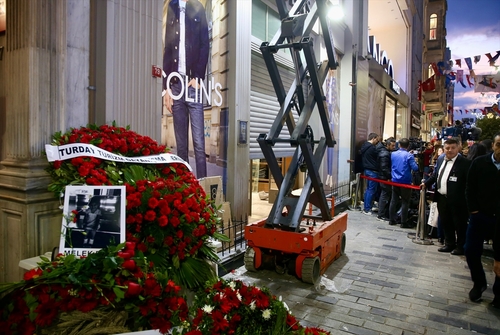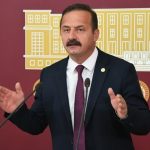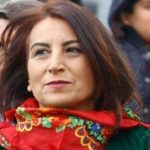Photo: AA
Journalism groups and opposition politicians have criticized the measures imposed on social media and news coverage following Sunday’s (November 13) bomb attack in İstanbul’s popular tourist area of Taksim.
Six people lost their lives and 81 others were wounded after a bomb planted under a bench detonated on İstiklal Avenue, a busy pedestrian street.
The authorities imposed several restrictions on news coverage regarding the bombing and on social media.
The Radio and Television Supreme Council (RTÜK) issued a broadcast ban for TV outlets shortly after the incident, while the Information Technologies and Communications Authority (BTK) restricted the bandwidth of social media platforms, making them unusable without a VPN or proxy connection.
A judgeship in İstanbul later issued a ban covering online platforms as well.
CLICK – Türkiye imposes strict restrictions on media coverage, social media following Taksim explosion
Such bans do not mean media outlets cannot report on the events in any way. They cover critical information such as visuals from the moments the incident happened, images showing the people who were killed and wounded, and the work of security units, etc.
After the bans were issued, prosecutors opened an investigation into those sharing “negative posts” about the incident on social media.
Also, police prevented reporters other than those of the state-run media from entering İstiklal Avenue, which was cordoned off following the explosion.
Legal basis of social media restrictions
Such restrictions violated the Constitution, critics argued.
In a written statement yesterday (November 14), the Journalists’ Union of Turkey (TGS) said such restrictions can only be based on freedom of the press and expression, citing relevant laws.
“The BTK has no authority to give instructions for internet restrictions, and if there was a decision taken, it should be disclosed to the public and its legal basis should be explained,” it said.
The BTK announced the bandwidth restriction hours after its implementation. Twitter, YouTube, Instagram and Facebook were affected by the practice, according to Netblocks, a platform monitoring internet censorship globally.
The restrictions were in violation of articles 26 and 28 of the Constitution, which are about the freedom of expressing and disseminating thoughts and freedom of the press, the union argued.
The BTK has the authority to impose bandwidth restrictions for 10 hours, according to a social media law enacted in 2020. For restrictions for over 24 hours, it needs a judgeship decision.
While bandwidth restrictions were a common practice in cases of similar attacks in the 2010s, it was the first time that it was applied under the new law, Erselan Aktan, a lawyer working in the field of freedom of expression, noted commenting on the issue for bianet.
However, he added, the authorities could have implemented different methods to prevent the dissemination of “objectionable” images and footage rather than restricting access to the platforms completely.
“Twitter and Instagram have tools that can block an image as soon as it is uploaded. Although it is mostly used for copyright reasons, this application is also frequently used for triggering content,” he said. “However, the first thing the BTK, the ministry and the judgeship think of is broadcast bans and bandwidth restrictions.”
Vague definitions
The basis of the RTÜK ban was article 7 of the Radio and Television Law No. 6112, which gives the council the authority to impose restrictions in case of extraordinary situations such as “war, attacks, natural disasters and similar extraordinary situations.”
“We are of the opinion that the decision taken with the ambiguous and broad authority provided by the article is not in compliance with freedom of expression,” said the TGS.
Aktan also said, “The ambiguous expressions in the title and content of the article make it impossible for the article to be predictable. And this ambiguity gives an unlimited scope of authority to the Presidency and ministers, who are given the authority of [requesting an] access ban.”
The judgeship had issued the ban at the request of the Ministry of Tourism and Culture.
Legal action
The Media and Law Studies Association (MLSA) yesterday filed an appeal against the ban issued by the İstanbul 10th Penal Judgeship of Peace.
It also alleged that the ban violated the same articles of the Constitution, as well as article 22 about freedom of communication.
“The intervention in question … is not only a block of access to news but also the elimination of a source of news,” it said.
The main opposition Republican People’s Party (CHP) announced yesterday that it would file a criminal complaint against the public officials responsible for the bandwidth restrictions on social media platforms.
CHP deputy Gürsel Tekin said, “An explosion occurred at the center of the largest city of the country. People were killed and injured. Everyone is curious, but the public doesn’t have the right to receive news about that. Why? Because the BTK chair doesn’t see it as appropriate. But he shares his condolence message on Twitter.” (VK)
Source:Bianet



